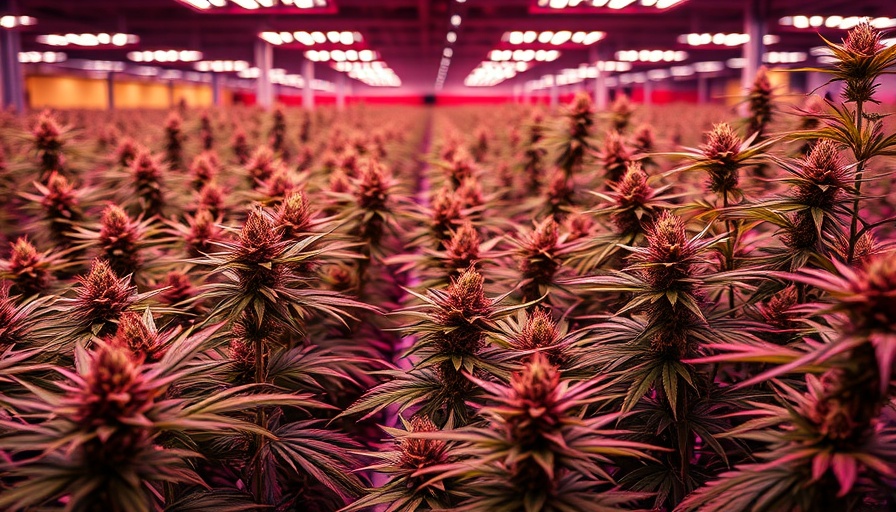
Texas THC Industry Breathed a Sigh of Relief
In a decisive move, Texas Governor Greg Abbott has chosen regulation over prohibition concerning hemp-derived THC products, a decision that has significant implications for the burgeoning THC industry in the state. With more than 53,000 workers spanning diverse sectors dependent on this industry, Abbott's call for a special legislative session beginning July 21 to regulate rather than ban THC products has been met with applause from businesses that fear extinction due to proposed restrictions.
The Economic Impact of Regulation
Industry analysts reveal that the cannabis sector has been a noteworthy contributor to Texas's economy, generating approximately $4.3 billion in retail revenue in 2025 alone, according to Whitney Economics. This revenue supports local businesses, fosters employment, and drives economic growth — all essential elements in a competitive market like Austin. Entrepreneurs in the area have long perceived the THC industry as vital to Austin's identity as a hub for innovation and economic development.
Support from Local Entrepreneurs and Businesses
Local entrepreneurs have staunchly advocated for a regulated market instead of a flat-out ban, emphasizing the importance of responsible business oversight. According to Austin business leaders, a structured regulatory framework would provide clarity and stability, which are crucial for growth. Such an environment allows startups and small businesses to thrive and engage in responsible business practices, thereby contributing positively to the economic landscape of Austin.
Regulation Versus Prohibition: A Broader Perspective
The latest legislative focus on regulating the THC industry also reflects a broader trend across the United States, where many states are transitioning from prohibitive measures toward a more regulatory-focused approach to cannabis. This shift acknowledges not only the economic benefits but also the changing public perceptions surrounding cannabis use for recreational and medicinal purposes.
The Future of Austin's THC Sector
As Texas moves towards a regulatory framework for THC, the anticipation builds among Austin startups eager to seize business opportunities in this growing market. These entrepreneurs are likely to benefit from enhanced support systems and resources available through collaborations with business incubators, venture capitals, and local business associations. The Austin tech scene, known for its adaptability and forward-thinking attitude, is poised to integrate THC products and services into its dynamic ecosystem. This could potentially lead to new and innovative THC-infused products that cater to a discerning consumer base.
The Intersection of Laws and Local Culture
Austin's vibrant cultural landscape plays an undeniable role in the city's response to THC products. The local community’s demand for responsible access to these products is crucial to any regulatory measures instituted. Keeping the public informed and engaged in discussions around regulations will help ensure that future laws resonate with the values and needs of the community.
Conclusion: A Call for Engagement
As Texas embarks on this regulatory journey, it will be essential for local businesses and consumers to stay informed about the changes and engage in advocacy that supports fair regulations. Stakeholders are encouraged to actively participate in public forums, providing input on how these regulations can be shaped to benefit both the economy and the community at large. Together, they can help ensure that Austin remains a progressive hub for innovation, economic diversity, and responsible THC use.
 Add Element
Add Element  Add Row
Add Row 



 Add Row
Add Row  Add
Add 


Write A Comment